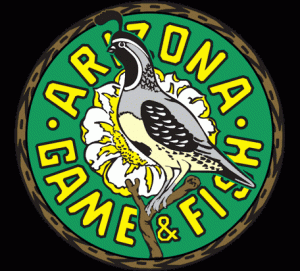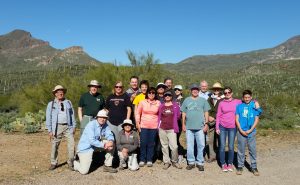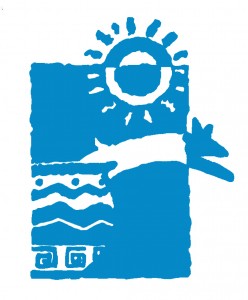Source: Joshua Bowling, The Republic/azcentral.com, October 18, 2017
Local Parks
Arizona State Parks and Trails Brings Home the Gold Medal for Best Managed State Park System
Source: Arizona State Parks and Trails Press Release – September 26, 2017
Arizona State Parks and Trails today won the Gold Medal for best managed state park system in the nation from the National Recreation and Park Association (NRPA). The award was announced this morning during the national NRPA conference in New Orleans, Louisiana.
“This is a tremendous achievement that benefits everyone in our state – from residents to tourists,” said Governor Doug Ducey. “Winning the Gold Medal is a testament to the hard work, collaboration and innovation that Arizona State Parks and Trails demonstrated to get us to this point.”
 Arizona State Parks and Trails was selected as a Final Four candidate in May, along with Tennessee State Parks; Washington State Parks and Recreation Commission; and Wyoming State Parks, Historic Sites, and Trails. Over the last two years, Arizona State Parks and Trails has established a self-sufficient funding structure, achieved record visitation and revenue and implemented a plan to reinvest in the system and create new parks.
Arizona State Parks and Trails was selected as a Final Four candidate in May, along with Tennessee State Parks; Washington State Parks and Recreation Commission; and Wyoming State Parks, Historic Sites, and Trails. Over the last two years, Arizona State Parks and Trails has established a self-sufficient funding structure, achieved record visitation and revenue and implemented a plan to reinvest in the system and create new parks.
“This Gold Medal win is not just about the staff of Arizona State Parks and Trails,” said Sue Black, Executive Director of Arizona State Parks and Trails. “This is about everyone in Arizona who contributes to our success or gets to enjoy our beautiful parks. It’s a huge honor to be considered the best-managed state park agency in the country, and we hope everyone will get out and see these amazing parks first-hand.”
To celebrate making it to the Final Four and hear the Gold Medal winner announced, agency partners, stakeholders and constituents gathered at the Arizona State Parks and Trails Outdoor Recreation Information Center on Tuesday morning as the event was live-streamed on Facebook from New Orleans. Executive Director Black accepted the award.
The Gold Medal Award honors state park systems throughout the United States that demonstrate excellence in long-range planning, resource management and innovative approaches to delivering superb park and recreation services with fiscally sound business practices.
For information about all 35 Arizona State Parks and Natural Areas, the Trails and Off-Highway Vehicle Programs and State Historic Preservation Office call 1-877-MY-PARKS or visit AZStateParks.com.
PRESS CONTACT: Michelle Thompson at (602) 542-1996 or (480) 589-8877 – Email: pio@azstateparks.gov
Arizona Game and Fish Accepting Applications for 2018 Heritage Fund Grants
Source: Arizona Game and Fish Department Press Release – August 11, 2017
The Arizona Game and Fish Department is accepting applications for more than $400,000 in Heritage Fund grants. The deadline to submit an application is Tuesday, Oct. 31, 2017 to be eligible for grant funding, which will be available through a competitive application process in the following categories: environmental education, outdoor education, schoolyard habitat, urban wildlife/habitat, public access; and Identification, Inventory, Acquisition, Protection and Management (IIAPM).
funding, which will be available through a competitive application process in the following categories: environmental education, outdoor education, schoolyard habitat, urban wildlife/habitat, public access; and Identification, Inventory, Acquisition, Protection and Management (IIAPM).
In addition to government agencies, the department welcomes non-profit organizations to apply for a Heritage Grant as eligible applicants. This eligibility applies to any non-profit group which meets the internal revenue service definition of a 501(c) organization.
The Heritage Fund was created after voters approved an initiative in 1990 and is funded through Arizona Lottery ticket sales. Heritage funding goes toward conservation efforts such as protecting endangered species, educating students and the general public about wildlife and the outdoors, and creating new opportunities for outdoor recreation.
The grant program was established by AZGFD in 1992 as part of the overall Heritage Fund program. The grants were initially developed as a way to promote outreach to enhance important partnerships and generate fresh approaches in support of the department’s mission. Since the grant program’s inception, the department has awarded more than $16 million and supported more than 800 projects throughout the state.
Applicants for this year’s grants should refer to the documents on our Heritage Grant web page for guidance on applying. The documents include the Heritage Grant application manual, the grant application form and the various “Heritage Grant Funding Window” documents, which describe eligibility information and provide specific eligibility criteria listed within each grant sub-category.
Potential grant recipients must have a project that is either located in Arizona or involves research in which the wildlife or its habitat is located in the state and meets the requirements in the funding windows.
Proposals and applications for these grants can be submitted either by e-mail to rbeck@azgfd.gov or mailed to Arizona Game and Fish Department, Attn: Wildlife Grant Administrator, 5000 W. Carefree Highway, Phoenix, AZ 85086. No faxed applications will be accepted.
Applicants can submit grant applications up until the application deadline of 5 p.m. (MST)Tuesday, Oct. 31, 2017.
Arizona Volunteers Provide Critical Support to County and State Parks
Source: Public Insight Network Bureau
During the Spring 2017 semester, an ASU student and representative from the Public Insight Network Bureau spent some time with the community of individuals involved in environmental protection and conservation. The student explored how these Arizonans are working to address the environmental issues that concern them, both through volunteer work and political activism within the state. At the PIN Bureau, they aim to increase public participation in journalism and believe that every person has insight or a newsworthy experience they can share. Part of their work includes engaging with a community, and reaching out to voices that can sometimes go somewhat unheard in the mainstream media. Click here to read the student’s final project.
protection and conservation. The student explored how these Arizonans are working to address the environmental issues that concern them, both through volunteer work and political activism within the state. At the PIN Bureau, they aim to increase public participation in journalism and believe that every person has insight or a newsworthy experience they can share. Part of their work includes engaging with a community, and reaching out to voices that can sometimes go somewhat unheard in the mainstream media. Click here to read the student’s final project.


You must be logged in to post a comment.